|
|
|
|
Nau mai haere mai - and welcome to this week’s newsletter.
“Climate change isn’t lurking around the corner ready to pounce. It’s already upon us, raining down blows on millions of people.”
These are the words of Inger Anderson, the executive director of the UN Environment Programme, speaking at this week’s launch of the latest report by the Intergovernmental Panel on Climate Change. The report arrived in an already grim week and it delivered a stark reality check.
Climate adaptation researcher Judy Lawrence contributed to a chapter about climate impacts in Australasia, and as she and her colleagues write, this decade will be crucial - it’s the narrowing window of time during which we have to both prepare for impacts we can no longer avoid and make significant cuts to emissions to keep global temperatures from rising above 1.5℃.
Even at the current 1.1℃ of warming, we already face inevitable climate impacts such as ongoing sea-level rise, and our coastal cities will bear the brunt of it. Our shoreline is our first line of defense, writes Massey University's Bruce Glavovic, who also contributed to the IPCC report. While the coast faces some of the highest climate risks, it’s also where innovative climate-resilient development can happen.
As always, there’s a lot more to read in this newsletter and on our homepage, including Paul Spoonley’s fascinating article tracing the line from QAnon to the protests at Parliament.
Many thanks for your ongoing support and interest. Take care and all the best, kia haumaru, noho ora mai.
|

|
Veronika Meduna
New Zealand Editor: Science, Health + Environment
|
|
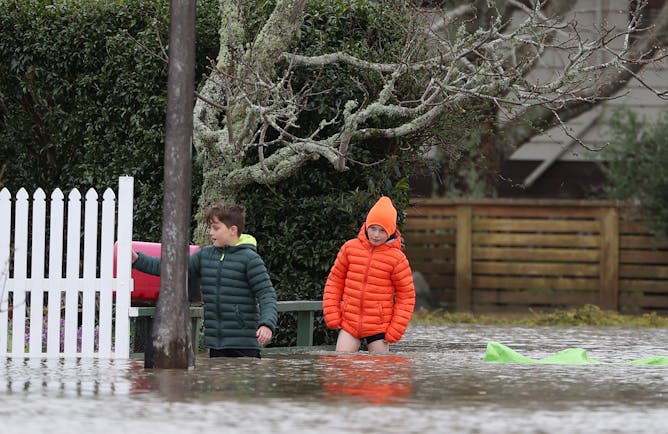
Judy Lawrence, Te Herenga Waka — Victoria University of Wellington; Alistair Woodward, University of Auckland; Anita Wreford, Lincoln University, New Zealand; Mark John Costello, University of Auckland
As the impacts and costs of climate change increase over time, New Zealand’s financial systems could become less stable and the government less able to support those affected.
|

Paul Spoonley, Massey University
New Zealand has a high concentration of extremist alt-right groups relative to similar countries. The challenge now is to head off hate crime and violence.
|
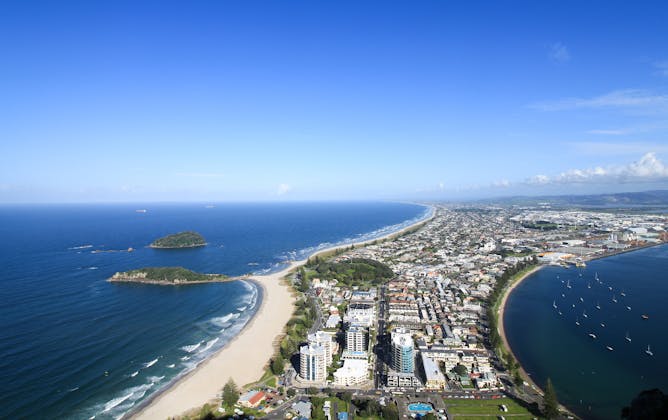
Bruce Glavovic, Massey University
Globally, about a billion people living in coastal cities are at risk of climate hazards. The impacts go well beyond the coast and could affect us all, with disruptions to supply chains and trade.
|

Claire Breen, University of Waikato
The prime minister and police have asked that children be removed from the protest at parliament – but the situation is legally and logistically complex.
|
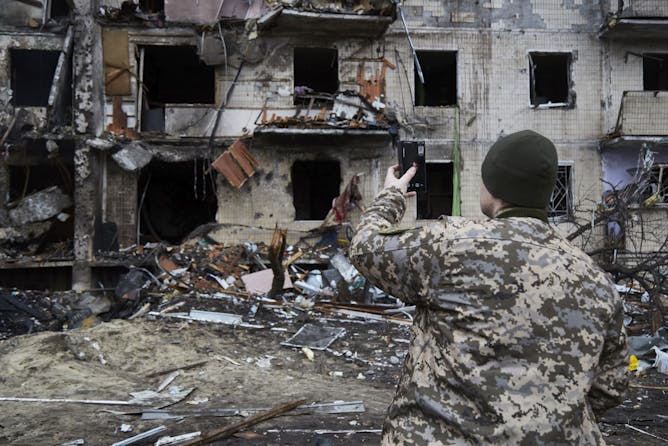
Alexander Gillespie, University of Waikato
International law has been breaking down for over two decades, meaning New Zealand must find new ways to promote peace and security.
|
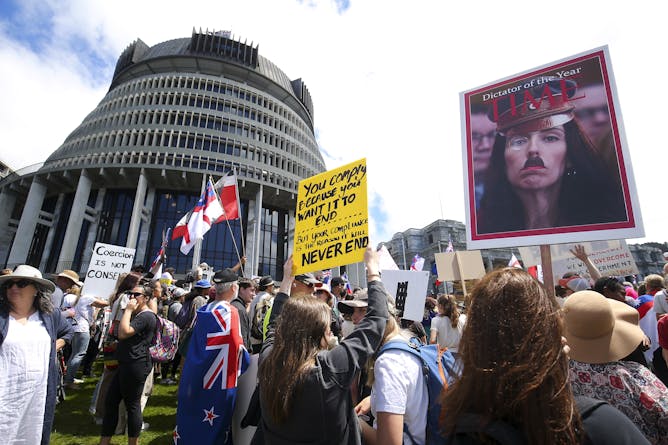
Giacomo Lichtner, Te Herenga Waka — Victoria University of Wellington
Political activists on both the left and right have long appropriated the rhetoric and symbolism of Nazism and the Holocaust, a tactic usually based on ignorance and false equivalence.
|
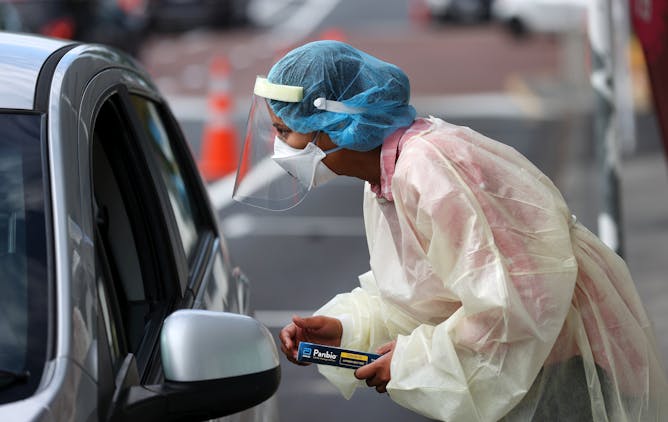
Michael Baker, University of Otago; Amanda Kvalsvig, University of Otago; Matire Harwood, University of Auckland; Nick Wilson, University of Otago
Now that Omicron infection is widespread, the government could improve trust by phasing out travel restrictions and border isolation and reviewing vaccine mandates to ensure they are proportionate.
|
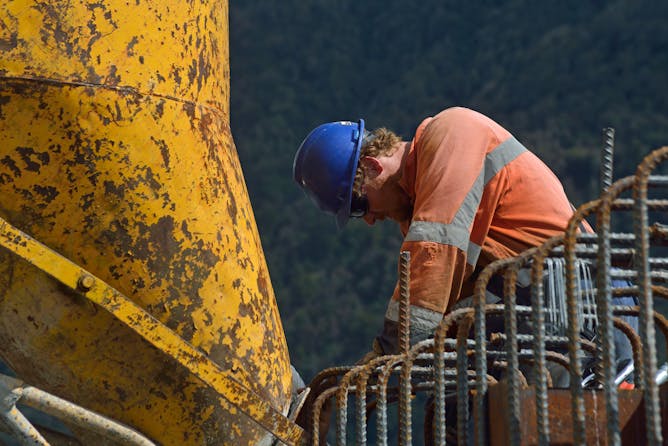
Suzanne Wilkinson, Massey University; Monty Sutrisna, Massey University; Regan Potangaroa, Massey University; Rod Cameron, Massey University
The construction sector has long suffered from lack of co-ordination, poor planning and vulnerability to shocks. If the country’s building and infrastructure needs are to be met, that has to change.
|
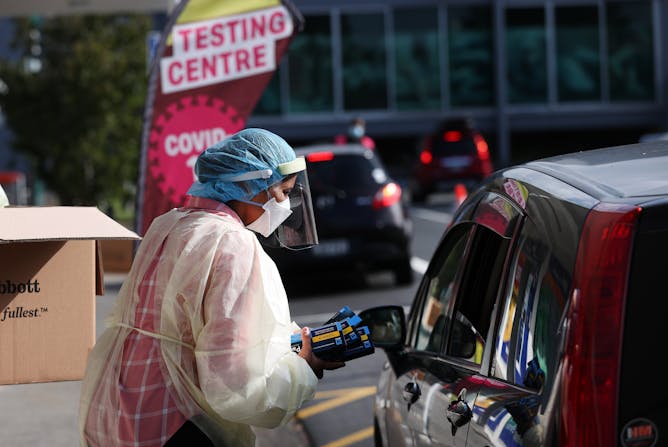
Dion O'Neale, University of Auckland
With access to testing limited and without other ways of measuring likely infection rates, New Zealand’s confirmed COVID cases are likely to be just a fraction of the total.
|
From our foreign editions
|
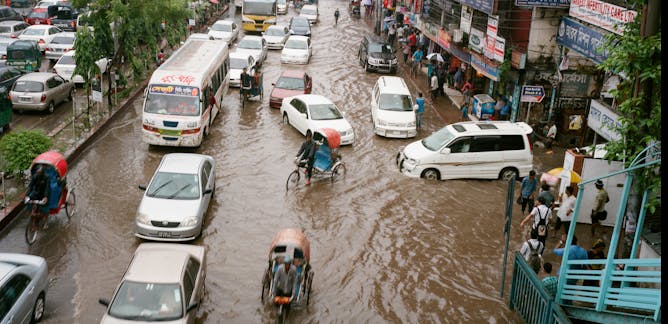
Edward R. Carr, Clark University
An author of the report explains the damaging effects climate change is already having and why adaptation is essential.
| |
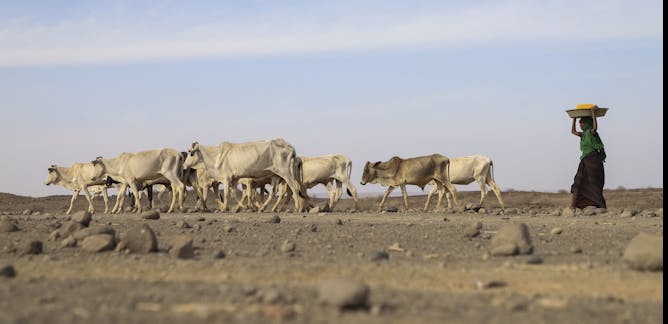
Mark Howden, Australian National University; Joy Pereira, Universiti Kebangsaan Malaysia (National University of Malaysia); Roberto Sánchez, Colegio de la Frontera Norte
The IPCC is the global authority on climate change. Their new report paints a worrying picture of climate impacts already affecting billions of people, economies and the environment.
|

Jennifer Medbury, Edith Cowan University; Paul Haskell-Dowland, Edith Cowan University
There’s an alleged global network of cyber activists operating under the Anonymous name. Knowing who is responsible for what will become increasingly difficult as more cyber attacks happen.
| |
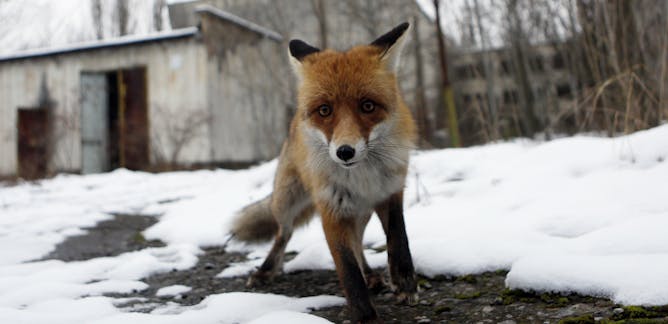
Carmel Mothersill, McMaster University
Heavy military vehicles may have kicked up radioactive soil around Chernobyl, and with fighting nearby there’s a danger of harming the concrete shelter containing the radiation of the leaking reactor.
|
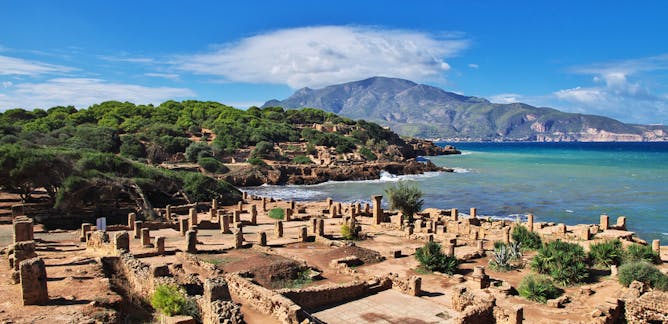
Joanne Clarke, University of East Anglia; Lena Reimann, Vrije Universiteit Amsterdam; Michalis Vousdoukas, European Commission's Joint Research Centre; Nicholas P. Simpson, University of Cape Town
Hundreds of Africa’s heritage sites are exposed to sea-level rise and coastal erosion in the future.
| |
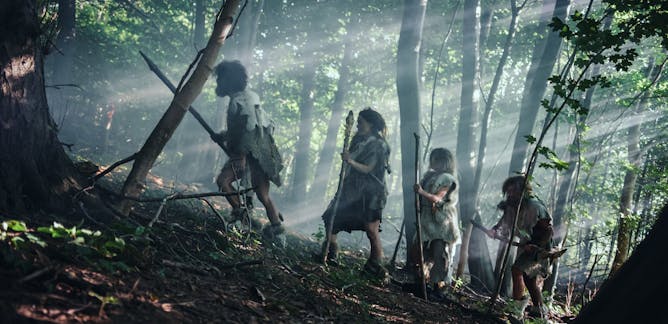
Yan Wong, University of Oxford; Anthony Wilder Wohns, Harvard University
How we’re linking together genetic material from thousands of people - modern and ancient - to trace our ancestors and the history of our evolution.
|

Alistair Milne, Loughborough University
Most media coverage has tended to focus on the Swift payments messaging system as the crux of Russia sanctions, but it’s actually peripheral.
| |
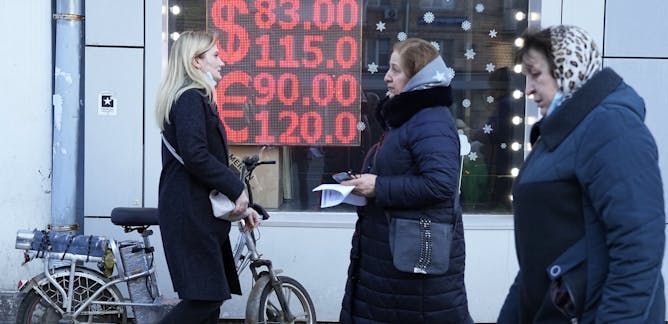
Peter Rutland, Wesleyan University
Soaring inflation and a run on the banks signal that punishing sanctions resulting from the invasion of Ukraine are already inflicting economic pain.
|
|
|
| |
| |
| |
| |
|
|
|
|
|
|
|